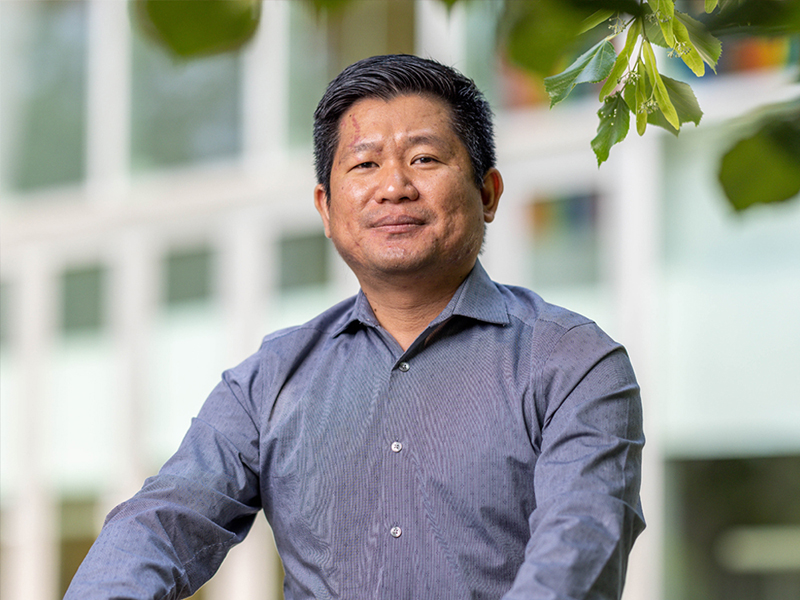
In early 2021, Bawi Mang Lian was a civil servant in Myanmar’s Ministry of Health. He and his department were preparing to submit draft legislation before parliament to enact universal health care coverage nationwide. Then, on Feb. 1, disaster struck: Myanmar’s military deposed the democratically-elected government in a violent coup.
In the months that followed, widespread protests devolved into armed clashes between pro-democracy groups and the military. Thousands of civilians have been killed, detained, or displaced.
Along with other public services, health care outside of major cities all but ceased to exist. Lian and a group of ethnic Chin health professionals co-founded Chin Health Organization (CHO) to provide emergency care to locals and refugees who have fled to rural Chin State.
What goals has CHO focused on?
We started seeing outbreaks of communicable diseases in Chin State, including malaria, and some suspected measles and polio cases, as well as a shortage of HIV drugs. We urgently needed routine vaccines, including COVID-19 vaccines. We started negotiating with international organizations to get funding and supplies to resume health services and life-saving emergency health responses, but as we are not affiliated with the military government, it got very complicated.
These days I think of UHC as “Universal Health Collapse” instead of Universal Health Coverage. We had a vision for universal health coverage in Myanmar by 2030; however, after the military coup we had universal health collapse. This is especially true in Chin State where health workers are targeted, arrested, and fleeing to the border areas. There are restrictions on medicine and medical equipment, and many health facilities are non-functional.
In November 2021 we set up CHO to become a health provider in Chin State. We started negotiating directly with the U.N., which agreed to provide some funding. Eventually we registered as a 501(c)3 in the U.S. so that we could receive funding from the U.N. and other groups.
What is the biggest obstacle you’re facing?
Right now, as we are the main health provider in Chin State, we need more funding and flexibility from the international organizations we’re working with. There’s a lot of red tape. We don’t want to be linked to the military government or any political party, which is very difficult, and dangerous. We try to keep a very low profile.
We have a lot of challenges purchasing vaccines, which are usually not available to the private sector in large amounts. And our funding is earmarked for spending in Myanmar, but the vaccine suppliers are over the border in India. We just finally got approval to buy vaccines from India, so we may be able to get doses for children in time to start a vaccination campaign before the rainy season.

What do you wish more people understood about your work?
There is a serious health gap in Chin State, because the health infrastructure is not functioning right now. Health workers have been targeted and arrested. There is no health services provider, aside from CHO.
No international organizations can enter this area, not only because it’s a difficult region to access, but because of security concerns. But the Chin community is there, and people are fleeing to Chin State, and they need care.
What keeps you motivated and focused?
Chin State is my home. I can’t go back to Myanmar, but I really want to do whatever I can from here [the U.S.]. I would like to help by connecting with stakeholders who are interested in this matter. Mostly I’m grant hunting, trying to secure funding for our activities on the ground, and, together with the team, starting to lay down the foundation for a local health system that will be integrated with the envisioned future federal health system in Myanmar. That is what I can do for them right now.
